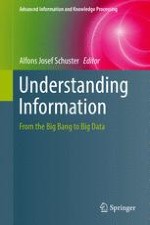2017 | OriginalPaper | Buchkapitel
11. Causal/Informational Theories of Mental Content
verfasst von : Fred Adams
Erschienen in: Understanding Information
Aktivieren Sie unsere intelligente Suche, um passende Fachinhalte oder Patente zu finden.
Wählen Sie Textabschnitte aus um mit Künstlicher Intelligenz passenden Patente zu finden. powered by
Markieren Sie Textabschnitte, um KI-gestützt weitere passende Inhalte zu finden. powered by
